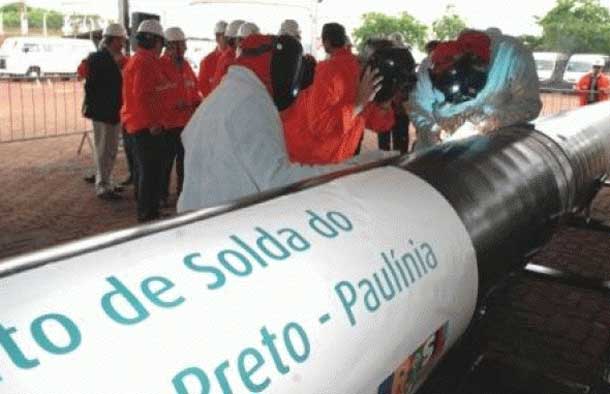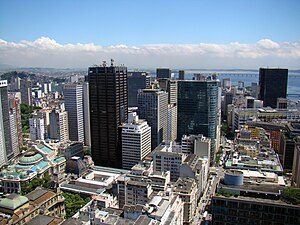
Sao Paulo, Brazil – One of the emerging markets in the world is Brazil. Within the next two years, Brazil plans to construct two pipelines to transport ethanol produced in the Sao Paulo, Minas Gerais, Parana and Goias states to different refineries, distribution terminals and export terminals located in the Parana, Sao Paulo and Rio de Janeiro states. The investment of $750 million over the next two and a half years into pipelines is planned.
In March 2013, Logum Logistica (Rio de Janeiro, Brazil), the major ethanol pipeline operator in the country, finished the first section of its ethanol pipeline system. For the construction of this section, Logum awarded Consorcio Etanol (Sao Paulo, Brazil), which is an alliance between Camargo Corrêa & Odebrecht, an engineering, procurement and construction (EPC) contract to install a pipeline between the cities of Paulinia and Ribeirao Preto, both in Sao Paulo State. The pipeline is to be 206 kilometers long and 24 inches in diameter.

Brazil Investing in Pipelines
Logum Logistica expects to finish the second section, which is between the cities of Ribeirao Preto and Uberaba city in the state of Minas Gerais, in October 2014. This section is to be 146 kilometers long and 20 inches in diameter. For 2015, the company expects to put into operations a third section between Uberaba City and Itumbiara City, in the state of Goias. The third section will be 243 kilometers long and 16 inches in diameter. Both sections will be constructed by Consorcio Etanol.
CPA Trading (Sarandi, Brazil) also plans to construct an ethanol pipeline system to transfer 3.6 million cubic meter per year in the state of Parana, in southern Brazil. The pipeline will be 520 kilometers long and 12 inches in diameter. CPA Trading awaits permits to construct the pipeline, which will begin in Sarandi City and finish in the Paranagua City Export Terminal. It believes that the construction should begin in third quarter of 2014.
Brazil is the world’s leading producer of ethanol from sugarcane, which is used both for domestic consumption and export. For 2014, the Brazilian authorities estimate that the country will increase domestic ethanol production 5% due to internal market regulations.












